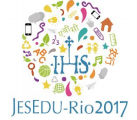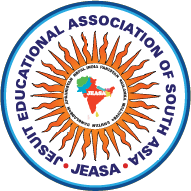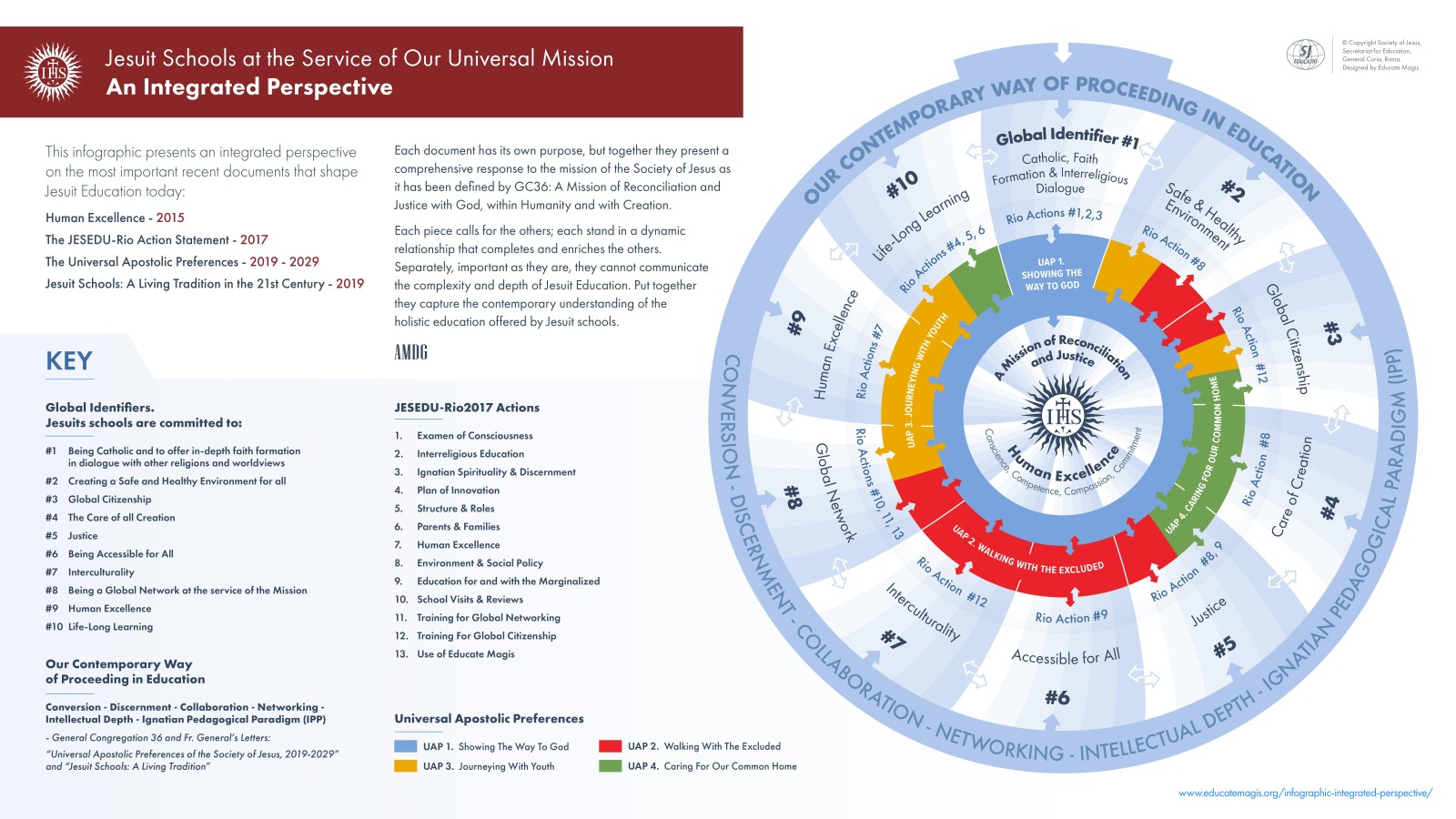
INTERNATIONAL CONGRESS
FOR JESUIT EDUCATION DELEGATES
RIO DE JANEIRO, Brazil
Action Statement
“To act as a universal body with a universal mission”
GC 35, D. 2 #20
From October 15-20, 2017, Education Delegates from the six Jesuit regions of the world along with others in Jesuit educational apostolates came together in Rio de Janeiro, convened by the Secretary for Education of the Society of Jesus.
Grateful for our Heavenly Father ́s care, the Spirit ́s inspiration, Jesus ́ companionship, and the guidance of St. Ignatius the delegates continued conversations begun in a Virtual Congress held six months earlier (which followed upon SIPEI in Manresa in 2014 and the International Colloquium on Jesuit Secondary Education in Boston in 2012). We are also grateful for Fr. General Arturo Sosa’s address to the congress and see our action statement as a response to his challenging invitation to re-imagining Jesuit Education (Fr. General’s address:
https://www.educatemagis.org/documents/allocution-fr-arturo-sosa-sj-jesedu-rio-congress-2017)
After further discernment ICAJE (the International Commission on the Apostolate of Jesuit Education), responding to the request of some delegates, proposes a prioritization of the actions to help delegates and schools in the process of their implementations. ICAJE believes in the importance of the 13 actions proposed and encourages delegates and regional networks to design plans to include them all in a reasonable time framework. However, the 8 actions in bold should be considered priorities that require prompt response. Still, if these actions are considered too many to begin with, delegates are encouraged to discern with their schools and regional networks where to start and how to incorporate the others progressively. ICAJE calls each delegate and regional network to elaborate a 5-year apostolic-plan (2018-2022) with the proposed actions “including implementation, monitoring and evaluation” (Gc36, D.2, #5) as the GC has urged.
A. The Experience of God
The spiritual experience of St. Ignatius of Loyola, centered in Christ, is the cornerstone of Jesuit Education and our challenge continues to be to invite our students and school communities to discover the inexhaustible richness of it in personal and communal encounter with the Gospel. We recognize the diversity of the religious and secular contexts in which our schools operate; however, Jesuit Education cannot happen unless a strong religious and spiritual formation can be offered in our schools. In our historical context this formation requires us to expose our students to our spiritual heritage, to the religious diversity of our contexts and the world to promote respect and appreciation for other religions and secular expressions.
1. The delegates commit to promote the Examen of Consciousness in each of the schools to help students listen to their inner voice and learn the path of interiority.
2. The delegates commit to work with the schools to ensure a module (or some such unit of the curriculum) of interreligious education is implemented. This module should allow students to learn about and from the world ́s religions and respect the various ways religions express and celebrate the divine.
3. The delegates commit to find ways in which Ignatian Spirituality (ref The Exercises) can be actively adapted to the school setting so that students learn the habit of stillness and the practice of discernment.
B. Tradition and Innovation
We are called to genuine discernment in continuity with our spiritual heritage to respond creatively to the challenges of our world and the new generations attending our schools. We are aware that our tradition calls us to engage in an ongoing conversation about the better means to serve our mission today that must be reflected in renewal and innovation in our schools and pedagogical models. All this needs to lead our schools to use the Ignatian imagination to propose and implement better educational practices that can really embody the human excellence of our education and transform our students, our societies, and us.
4. The delegates commit to engaging a process of Ignatian discernment that will lead to a plan of innovation for each school and a periodic review that corresponds to the local context and our tradition.
5. The delegates commit to reviewing with schools the traditional organizational structures and roles with a particular regard for gender stereotypes and gender inequalities.
6. The delegates commit to working with the schools to enhance the way parents and families are invited into our education and formation.
7. The delegates commit to urge the schools to reflect on the nature of human holistic excellence (the 4 Cs) so that academic success can be understood in its proper context. The delegates also commit to urge the schools to reflect on traditional notions of success and failure in the lives of our students.
C. Caring for Our Common Home: Reconciliation with God, Humanity and Creation
The raison d ́être for our schools is the service of the mission. Today this mission entails a service of faith, justice, and care for the environment. We need to make sure that our schools continue to focus on our mission and can educate ourselves and the new generations in our holistic tradition. We recognize that our schools feel a tension or experience a gap between serving the mission and being relevant for students, parents, and the larger society. This tension has always been present in our history and has challenged our creativity. Today ́s context requires a serious discernment to make sure that our mission for reconciliation and justice is reflected in our schools. Given the advent of Artificial Intelligence, the fourth industrial revolution, and its implications for human experience and changes in workplace conditions, it is incumbent on our schools to be rooted in the humanistic education Jesuit schools have always been known for.
8. The delegates commit to promoting an environmental and social policy for each of our schools and to proposing ways regional networks can clearly integrate justice, faith, and care for the environment within the curricula of the schools (e.g., Healing Earth living text: (http://healingearth.ijep.net) highlighting critical thinking, political awareness, and social engagement – all to be reflected in classroom and school practices.
9. The delegates commit to ensuring that schools have a program in place that allows students from marginalized and poor sectors of society to participate in a quality education and to ensuring that schools serving the marginalized and poor reach beyond their experiences to build bridges with other people and communities.
D. Sent in a Global Network
General Congregation 36 reminds us that ́collaboration naturally leads to cooperation through networks. New technologies of communication open up forms of organization that facilitate collaboration. They make it possible to mobilize human and material resources in support of mission, and to go beyond national borders and the boundaries of Province and Regions. ́ (D.3 #8) To answer this call our schools and local and regional networks are required to commit to be in global companionship so that our school communities can see themselves as a part of a universal body with a universal mission (GC35 D2 #20). This is indeed a new mindset and way of proceeding that demands our creativity and commitment to find ways to work together and accomplish a new level of agency for our schools. This process will make our schools stronger locally and globally and more relevant to the societies we serve.
10. The delegates commit – during their school visits and reviews - to assessing and developing the level of regional and global networking cooperation that exists.
11. The delegates commit to including in new faculty and staff training programs an understanding that faculty and staff are joining a global network and that they have a role to play in animating it.
12. The delegates further commit to working with the schools ́ leadership to oblige all faculty and staff be formed in global citizenship so that they can help students understand their future as global citizens.
13. The delegates commit to making Educate Magis an integral tool and resource in the schools to help animate their global dimension.
E. Delegates ́ Request
The delegates ask the Secretary for Education and ICAJE to help them define the role of the Education Delegate regarding the expectations for promoting the Global Network.
The delegates undertake to fulfill these commitments and are open to a process of continuous review.
Related Resources
THE CALL TO RENEWAL: Frs. Arrupe & Kolvenbach
Ignatian Pedagogical Paradigm (IPP) Celebrates 25th Year of its existence
Jesuit Education A Contemporary Map
NATIONAL EDUCATION POLICY 2020
Earn an Ignatian Global Citizenship Certificate! Available Now Through Educate Magis


 © JEASA 2025, Powered by
© JEASA 2025, Powered by 


